Should I BUY or RENT When Moving To Salt Lake City, Utah? (This Will Surprise You)
What's up, you guys? It's Cody Steck. Welcome back to the blog. Today I've got a very special video for you here. We're going to talk about the financial breakdown of whether you should buy or rent when making your move here to Salt Lake City.
I've got all the numbers here on my computer and I’ll be reading them out for you. This is going to be an analytical breakdown of the pros and cons of buying and renting to help you make the decision on what's the better choice for yourself.
Now, all that being said, you might say, hey, Cody, you're a real estate agent. Of course you're going to tell me that buying is better just because you want the business. And well, yeah, I'd love to help you do that, but I'm going to tell you that for most people, nine times out of ten, buying is the better option, and I want this data here on my computer to show that to you. I don't want it to be just my word.
I want to actually show you why I believe that's the right answer. Even if you don't end up working with me during your move here to Salt Lake City, I still think this is a better option, and I just wish you the best. But with all that being said, hey, if you're reading this article, you might be interested in working with me. If you are and you're thinking about making that move here to Salt Lake City, make sure to get in touch with me. I've had people from all across the world reach out saying, hey, Cody, I'm moving to Salt Lake.
What do I need to do? What do I need to know? How can you help me? And I absolutely love it when you guys reach out, call me, text me, or email me any time. My information will be listed down below. I absolutely love hearing from you guys. And like I said, I've helped people from all across the world. So I can't wait to hear from you as well.
Now, with all that being said, I’ll be jumping right into the computer here and taking a look at these numbers and talking about them as we go. All right?
So jumping into the spreadsheet here, I’m going to break it down very easy for you so you can kind of learn how these numbers play out. Now, for this example, we are going to be looking at what it takes to buy a home in the $600,000 price range.
I felt like that was a fairly median price to kind of capture people who might be below that, but also capture people who might be looking at a range above that. The numbers are going to hold true whether you go down in price or you go up in price. So it's not going to change that much. There will be some variations, but I just thought, hey, this is going to be a good number to kind of capture a fair picture of what this actually looks like. Right.
So here as well, at a down payment. There are two different down payment options, 5% down and 20% down. Then the loan amount and the payment with taxes, property, insurance, and PMI for the 5% down payment. Down payment. So looking at this, you can see we've got the purchase price here at $600,000.
We've got our two down payment options, $30,000 versus $120,000. Depending on your situation. You can do both. If you put more money down, you're going to have a lower payment. But that does mean that you have to have that money initially, and then you're going to put it into your house where it's kind of tied up and you can't really do much with it whether or not you should go 5% or 20% down.
That's kind of a discussion for another article. There are some instances where it might make sense to do one or the other. So it just kind of depends if we move over here to the loan amount and the interest rate. If you put $30,000 down, of course you're going to have a $570,000 loan amount. And we're assuming a 2.875% interest rate, which is the par rate or the market rate for what we're seeing in the market here today at the end of December. And the next column, if you put $120,000 down, you're looking at a loan amount of $480,000 again at that same interest rate. There might be some variations in the interest rate, depending on your credit, your financial profile, the lending limits at that time.
We're just going to make it easy here. We're trying to round numbers just to keep everything smooth and simple to understand for the basis of this example, now looking at the payment amounts with taxes, property and insurance and the PMI for this 5% down payment, you've got a payment amount per month of $2,850, roughly give or take.
It is rounded just slightly, but roughly $2,850. If you do 20% down, you're looking at a payment of $2,300 per month. All right. Now, Zooming out just a little bit and come down here and look at the principal pay down, what are you going to pay down on your loan every single month when you make that payment? Well, if you do 5% down, you're going to pay down your principal, $1,000 per month.
This is basically where it starts out at. So $1,000 per month every single time you make that payment, you're taking $1,000 off of your loan. If you do 20% down, it's only 841. Now, you might be looking at this and say, well, why is it lower if it's 20%? Well, it's because your overall payment is lower.
Remember that you're only paying $841 because you have a lower overall payment of $2,300 versus $2,850. So less is going towards principal, but less is also going towards interest. And that means that less is coming out of your pocket every month for the total amount. So if we look at this over the next five years, 10 years and 15 years, you can see that over the next five years you're going to pay down your loan on the 5% options, $60,000. If you look at ten years, it's going to be $120,000.
If you look at 15 years, it's over $180,000. If we look at this for the 20% option, you've got $50,000 here, $100,000 and $151,000 over the next 15 years. Now, the thing I want to point out here is that it's actually more because of the amortization of the loan. It increases each month. The way that these loans are set up is when you make your payment every single month, you're going to pay less towards principal and more towards interest.
But as you make a payment each month, the amount that goes towards the principal goes up and the amount that goes towards the interest goes down. So you're actually paying a little bit more towards the principal each and every month. So this even though it says $60,000, it's probably going to be like $61,000. This says $120,000. It's probably like $123,000 and $125,000 somewhere in there 15 years, it's going to be close to 200, probably over $200,000 by 15 years.
But again, just to keep it simple, we're using very conservative numbers here. All right, now let's talk about the appreciation and stick with me because I know we're getting into some deep numbers here. We're going to take a look at the rent. We're going to look at that as well as we move forward in this.
All right, jumping back here to appreciate. We are expecting that the appreciation of the property will go up roughly 3% per year. Now, to be honest with you here in Salt Lake, we are seeing much higher rates of appreciation over the past couple of years, which may or may not continue. Right? Nobody really knows.
But when you look at it from a long-term perspective, we're kind of expecting appreciation to go up 3% per year. That's kind of a safe number. Yes. It will go up higher than that for some years. Other years, it might go down, right?
You might lose 10% in a year. During the Great Recession, I think some years it was down like 10% 12% percent somewhere in there. I don't know the exact numbers off the top of my head, but it will go down. But when you look at it over like a 30 years, 40 years, 50 years time span, you're looking at roughly 3% appreciation. So that's kind of what we'd like to use in the real estate industry just to give you a fair number that you can kind of safely plan on.
So again, looking at the appreciation, this $600,000 property in five years is going to be worth $696,000. In ten years, it's worth $806,000. And in 15 years, it's worth $935,000. Now, I did round this to the nearest thousand again, just to keep the numbers easy. But I mean, look at this, guys.
This is crazy. $600,000 in 15 years, your house is worth $935,000. That's pretty crazy. Looking at $600,000 houses and saying to yourself, man, this house is going to be worth almost a million Bucks in 15 years. It's a little hard to say when you're like, man, that's what I get for my money, right?
But when you look at it long term basis, this is kind of what we're expecting. Okay. Now with that being said, I want to add in this little part here. In 180 months of owning the home, let's say you've owned it for 15 years, you have been there for 180 months. You've made 180 payments just in the appreciation alone.
You're gaining $1,860 a month just for owning the home. And your payment stays the same. Your payment never goes up, assuming you never refinance or taxes and insurance might cause your payment to go up a little bit because generally over time, those will go up as well. But the actual amount you're paying towards your loan is not going to change. It's going to stay the same over this time period.
So looking at that and saying, man, just for owning this home for one more month, I just made $1,800. And then one more month after that, I just made another $1,800. So you can look at the appreciation in this. And this is pretty insane. When we get to the rental numbers, you're going to see how crazy these numbers are.
And it's really going to give you a breakdown of why buying a home in most cases is actually better than renting. All right. Now, before we get to the rent numbers, let's actually discuss at this one last thing here. Maintenance you are going to have some maintenance on the home, right. If you're renting the house, you're not going to have maintenance.
You're not going to have to repair stuff or take care of the sink when it's leaking or take care of the roof when it needs to be replaced. That is one of the benefits to renting. Sure. But when it comes to owning a home, you are going to have to pay for those maintenance items. And so I did want to put this in here because I know there's going to be that one person who's like you didn't include that.
And so I did want to put that in here just at the last minute. I'm assuming $200 a month, right. Some months you're not going to have any maintenance. Other months you're going to have bigger items. You might have the furnace that you need to replace.
It might be the water heater, it might be the roof. And so I'm just assuming kind of a $200 a month maintenance fee, which I think is a pretty fair number for this. Sure. With inflation, it might go up over time. But again, we're just using round numbers.
I'm just trying to give you the basic idea of this so you can kind of get an idea of what this looks like. So over five years, you're going to be $12,000 in maintenance, ten years $24,000, 15 years $36,000. Now, this is the part that's really important. You have $335,000 in appreciation minus your maintenance cost of $36,000 gives you a rough profit of $299,000 just for owning the home. This doesn't take into account the principal paydown because we're just looking at appreciation versus the maintenance of it, because when you make your principal paydown, you're actually paying back the debt that you have.
And some of that goes towards taxes and insurance, which is not your money. It doesn't come back to you, I should say. So looking at this man, over 15 years, $300,000 profit, that's pretty damn good, right? That's like I don't know what is that? That's $300,000 divided by 15 years.
That's $20,000 a year in profit that you're getting just for owning the home, basically. So you can see why buying is so powerful. Now let's talk about rent. Rent. For a home like this, you're looking at probably about $3,000 a month for an equivalent home.
A home that would sell for $600,000 on the market is going to rent for somewhere around $3,000. There might be some homes that rent for less. There might be some homes that rent for more. But again, just for rough numbers, we're going to say $3,000 rent is also going to increase at roughly 3% per year as appreciation on the homes go up. So does the rent increase.
And you're also going to see inflation, right? So the cool thing with inflation is as you earn more money in the future, your loan payment never changes. So it actually becomes easier and cheaper to pay that loan. Whereas when it comes to rent, you're paying more and more every single year. So 3% per year on the rent increase.
The first year, it's going to cost you $3,000 a month. After five years, you're looking at $3,477 per month, ten years over $4,000, and in 15 years, you're paying over $4,673 a month in rent for the same home. Remember, in 15 years, you're paying $4,600. Whereas if we come back up here, look at these other ones, I did it in blue, so we can kind of compare it easily. You're looking at either $2,000, $2,850 or $2,300.
That's a huge gap there. I mean, that's over $2,000 a month in the gap for the rent between these two items coming back down here, look at the total paid that is down the drain. First-year, you're paying $36,000. Just in year five, you're going to pay $41,000. In year ten, you're going to pay $48,000.
Year 15, you're paying $56,000 down the drain and not getting anything back for other than just a place to live. Now that kind of wraps up our chart here, guys. I want to take a look at the overall picture just to show you what we're looking at here. And I hope this kind of gives you an idea of why I think it's better to buy a home as opposed to rent. Yes, there are pros and cons to both.
I know that one of the arguments is going to be, well, hey, I don't know where I want to live. I don't know if that's the house I'm going to want to be in. I don't know if the schools are good. I don't know if there's a high crime there. I don't know this.
I don't know that. And that's a fair argument, right? That's a very fair argument, especially when you're moving to a new area. Perhaps renting just for a couple of months might be the better option if you're just kind of really risk-averse and you just want to be conservative and not get into something long-term. I think that's a fair argument, right?
I'm not going to deny that. I think there are some benefits to doing that for the short term. However, you should look at trying to buy a home as soon as possible. You want to make sure you're looking at buying a home because of these numbers. I mean, just look at the power of this guy.
You can really see how buying a home is going to benefit you in the long run. The other thing I want to say is that some people will say, well, I don't want to be tied down. What if I have to move out of state again? What if I have to move here, move there, whatever. Well, okay.
Just take the home that you bought and turn it into a rental property. Same thing if you end up in an area when you make your move here and you're not too happy with the schools there or you've got a bad neighbor or you want to live closer to the mountains or whatever the case may be. Okay, that's fine. Take your home, turn it into a rental property, let it build a long term wealth for you, and use it as a retirement vehicle. Again, if we look back at this, I mean, you can see that your payment here, let's say you put 20% down, your payment is going to be $2,300 a month for rent.
You're going to be $3,000 a month bringing in $3,000 a month in rent, and you're paying out $2,300. Now, you're going to have some expenses, right? Property manager, some maintenance, some other things. Right. Like that.
So you might only cash flow like a couple of hundred bucks that the first year. But as time goes on, let's say you're ten years down the road. Now you're bringing in $4,000 a year, excuse me, $4,000 a month in rental income and you're paying that payment of $2,300. Now you're cash-flowing $1,000 a month. You're still getting the appreciation.
So your property is still going up in value. You're still paying down the property every single month, every time you make that payment.
I don't want to beat this to death. I feel like I've rambled on enough about the power of buying, but I wanted to give you this financial breakdown. We'll just kind of in the video right here. I want to give you this financial breakdown so you can see for yourself the power of buying versus renting. As I said, I think that for nine out of ten people, buying is the better option.
If you're only going to be here for six months or you're like, hey, I can't decide between Salt Lake City and Denver and you want to kind of test out both, maybe just come here and rent for a couple of months. That's totally cool. Like I said, I would love to help you buy a house, but if it's not the right decision for you, then it's not. But when it comes to a financial analysis, there's really no denying that over the long term, buying a home is going to be the better decision for you. Even despite these numbers, even if I was high on some numbers, even if I left some stuff out, even if some of the numbers change or appreciation is only 2% or interest rates go up a half percent or whatever, it's pretty strong.
The evidence is clear that buying a home is going to be the better option for you in the long term. So with all that being said, guys, thank you so much for reading this article through to the end with me. If you enjoyed this content, make sure to share this with your friends and family members if you haven't already done so. And last but not least, make sure to get in touch with me.
If you're making that move here to Salt Lake City, get in touch with me, call me, text me or email me any time my information is listed down below. I love it when you guys reach out and I can't wait to hear from you as well. I mean when people reach out I just get so excited because I love sharing this state with other people. I love sharing what we have to offer here and love seeing people come in and just have such a good time. After making that move here I've helped people from all across the world and I can't wait to help you as well.
So with that being said guys get in touch with me and will catch it in the next one.
Cody Steck, Realtor
Real Broker, LLC
801- 244- 2297
Cody@fastutahhomes.com
Categories
Recent Posts
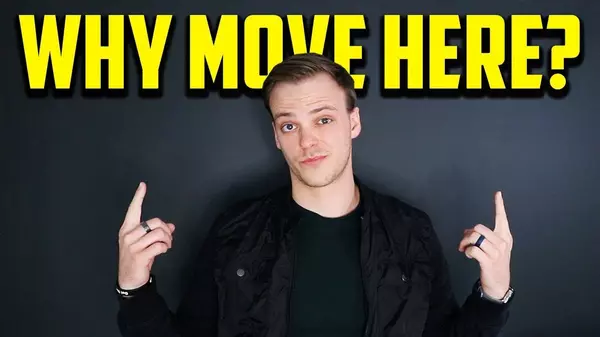
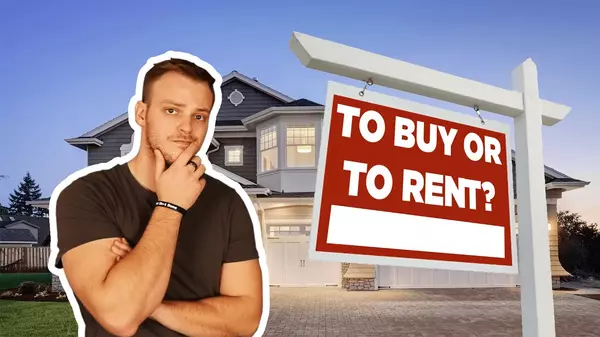
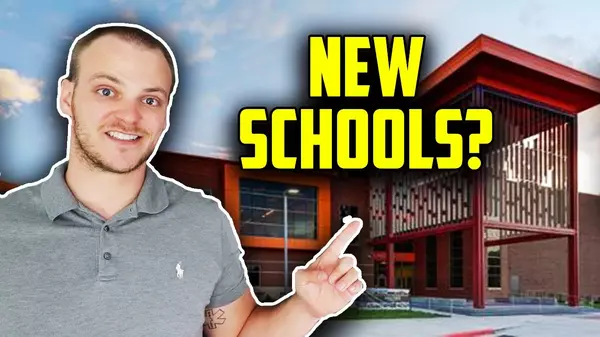
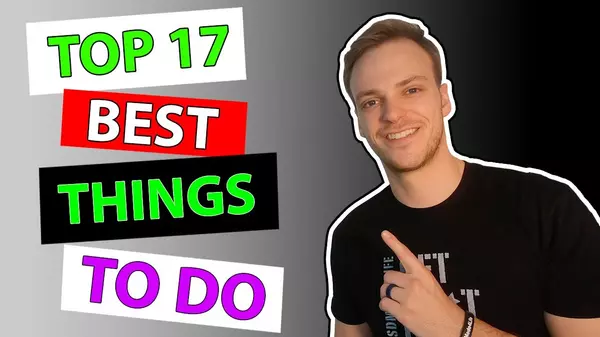

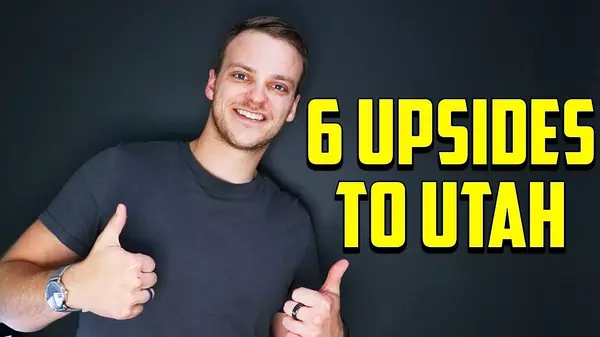
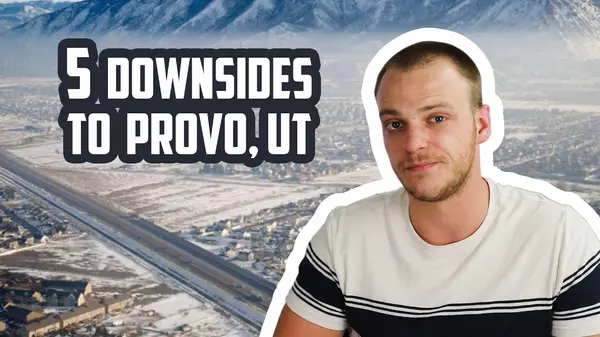



GET MORE INFORMATION

